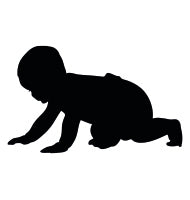All about Vitamin D
-

What is Vitamin D
Vitamin D helps regulate the amount of calcium and phosphate in the body. These nutrients are essential to keep our immune system, bone and phosphate in the body.
A lack of Vitamin D can lead to bone deformities such as rickets in children and bone pain caused by a condition called osteomalacia in adults.
-

Vitamin D and Sunlight
In Europe, from about late March to the end of September, most people should be able to get all the Vitamin D that they need from sunlight.
The body creates Vitamin from direct sunlight on the skin, when outdoors.
But between October to early March, we do not get enough Vitamin D from sunlight alone.
-

Good Source of Vitamin D
Vitamin D is also found in a small number of foods. Sources include:
- Oily fish
- Red meat and Liver.
- Egg Yolks
- Formula Milk
- Fortified Foods - such as some spreads and breakfast cereals
Signs and Symptoms of Low Vitamin D
Tiredness, bone and back pain, muscle spasms and weakness, frequent infections, poor sleep pattern, pins and needles in hands or feet, hair loss, sensitivity to pain, or irritability and mood changes could indicate you are low in Vitamin D.






